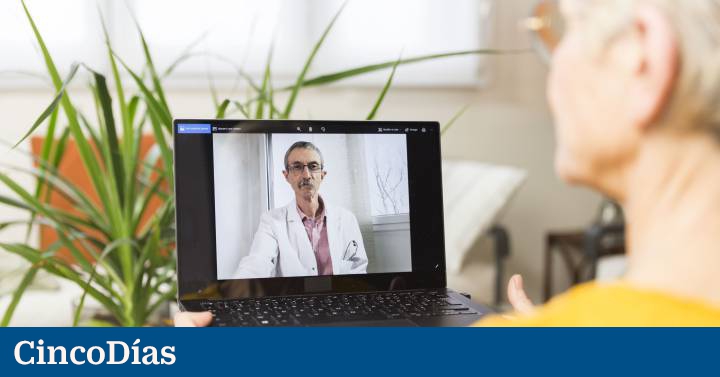
If a few years ago it was completely unimaginable to get professional healthcare in a way that was not strictly face-to-face, advances in digitization have brought with them a whole range of possibilities in this field. As in many other sectors, the impulse of the pandemic and the fear of patients or the inability to go to health centers have caused a focus on distance care. Many processes will always require physical contact, but some of the consultations, either by video call or even by messaging that allows instant access to a health care worker’s opinion, can be done without going to the health center.
“The benefits of remote care are clear. Neither patients nor professionals should travel. In such moments, the fear of going to a doctor, whether public or private, is ideal. If the virus is somewhere, it is logical to believe that the clinic may be due to the transfer of patients. For telemedicine, the virus has been a spectacular driving force, ”says Carlos Falcato, CEO and founder of Salud On Net, a pioneering initiative that functions as a kind of online marketplace where private health services are contracted. it is necessary at that time.
The entrepreneur emphasizes that remote care is especially beneficial for certain patient profiles. “For patients with chronic problems, video consultation was a spectacular tool because, for example, it allowed them to go to a cardiologist or dermatologist by sending photos to make a diagnosis. The experience was so good that users repeat. Even when I can already go to the doctor, I take it as a real alternative “.
Nel González, President of the Spanish Confederation of Mental Health, also recognizes the potential of this method in the world of psychological care. “We need to take advantage of technology, for example, in cases of suicide risk, the person assigned to the patient has the opportunity to be accessible to support him when he needs it most, but we must not change seeing ourselves personally.” , he warns.
And it is that for the expert, distance care has gaps, the main one being the lack of resources. “It would have been very important if telemedicine had caught us with sufficient resources. The pandemic came with an absolute lack of human and economic resources. In European countries there are 18 psychologists for every 100,000 inhabitants and in Spain we have 4 ”. Another problem is that the quality of communication is lost. “As a communication professional, you know perfectly well that a room imposes a room on any of us, even if we are very beautiful and photogenic. Imagine you are with your doctor in front of a room. It imposes ”.
New ways of access
In addition to participation, digitalization in health has had an impact on opening up new forms of access to services. This is the case with Salud On Net. The platform works as a private insurer for health centers, with which it negotiates a reduced price for access to treatment, but for the public, it allows payment per use. „The user enters the web page and selects the medical act that interests him; You can search by price and by evaluating other people. The service is purchased, paid with the card or in other ways, and a usage code is generated and presented at the clinic “, Falcato details.
According to the founder, the platform works well in ecosystems with developed private sanitation. Before the pandemic, he planned to expand to Latin America; The virus forced him to freeze plans, but he is convinced that they will eventually reach the area: “Not many people have access to insurance because of their economic capacity, and yet if we negotiate rates with clinics, we get a fully democratic price for almost all pockets ”.
The platform is available throughout Spain, but has not had the same reception in all places, mainly because the degree of technological reception is not at the same level throughout the country. “Madrid is not the same place, where people are used to using their smartphone for anything, unless they go to Ávila or Toledo or in rural areas. This is a spectacular alternative for rural areas, but there is a more cultural issue than connectivity. “
Falcato reveals that his company intends to arrive in Mexico. “It simply came to our notice then. It is a very interesting country, what happens is that it requires a large investment, because it is very large. We thought we’d start somewhere. It’s like when we wanted to start in the United States, we weren’t going to do it globally, but by states. Mexico is the center of attention and the natural thing would be to start in Mexico City “, he says.
From reactivity to proactivity
mONITORING
Through a monthly subscription service of 4.99 euros, Salud On Net offers the possibility of unlimited video video consultations. The platform stores a series of patient data that allow doctors to advise in a personalized way in each case. “Good health is generally not good luck or bad luck, try to maintain the best possible health, as long as the habits we all know are maintained. Controls stress, sleep, diet and sedentary lifestyle. Through our platform, this information is stored to diagnose these habits and provide better solutions “, says the founder and its CEO, Carlos Falcato.
A god
Regarding the fact that this type of initiative is now temporarily out of fashion due to the pandemic or whether, on the contrary, they will last once it passes, the CEO says that in favor of telemedicine there is a very important factor: “Once patients try, they tend to repeat ”.